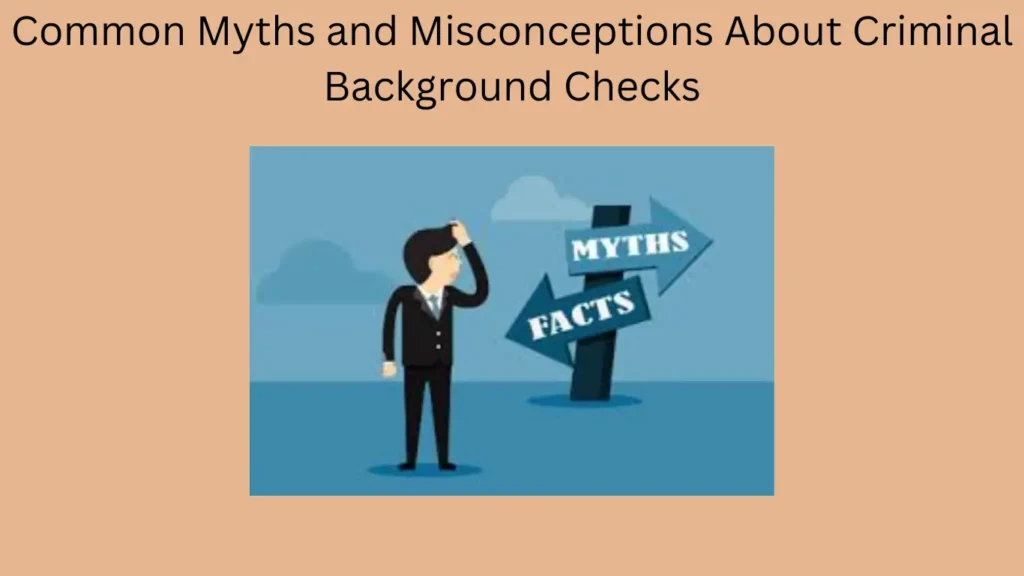Criminal background checks play a crucial role in the hiring process, but they are often surrounded by myths and misconceptions. This article aims to debunk some of the most common myths about criminal background checks and provide accurate information to help employers make informed decisions.
Myth 1: Background Checks are Only Necessary for Certain Industries
Reality: While certain industries, such as healthcare and finance, may have stricter regulations regarding background checks, they are important across all sectors. Any role that involves access to sensitive information, financial transactions, or interaction with vulnerable populations can benefit from a background check.
Myth 2: Criminal Background Checks Are Always Accurate
Reality: While background checks are valuable tools, they are not infallible. Errors can occur due to inaccuracies in databases, outdated information, or mistaken identity. Employers should verify any potentially negative findings and give candidates the opportunity to explain any discrepancies.
Myth 3: Candidates with Criminal Records Should Always Be Rejected
Reality: While criminal history is an important factor to consider, it should not automatically disqualify a candidate. Employers should assess each case individually, considering factors such as the nature and severity of the offense, how long ago it occurred, and any evidence of rehabilitation. Blanket policies that automatically reject candidates with criminal records can perpetuate discrimination and may not be legally compliant.
Myth 4: Ban-the-Box Laws Eliminate the Need for Background Checks
Reality: Ban-the-box laws, which delay inquiries about criminal history until later in the hiring process, aim to give candidates with criminal records a fair chance. However, they do not eliminate the need for background checks altogether. Employers still have a responsibility to ensure a safe and secure workplace, which may include conducting background checks after an initial assessment of a candidate’s qualifications.
Myth 5: Background Checks Are Expensive and Time-Consuming
Reality: While background checks do incur some costs and may take time to complete, they are a worthwhile investment in the long run. The cost of a background check is minimal compared to the potential risks and liabilities of hiring an unsuitable candidate. Additionally, advances in technology have made background checks more efficient and affordable than ever before.
Conclusion
Criminal background checks are valuable tools for employers, but they are often misunderstood. By debunking common myths and misconceptions, employers can make more informed decisions and ensure a fair and effective hiring process.
For further Inquires Contact Us
FAQs
Do criminal background checks reveal all criminal history?
No, background checks may not always reveal an individual’s complete criminal history. They rely on databases that may not be up-to-date or may not include all records.
Can a criminal background check be conducted without the candidate’s consent?
No, conducting a background check without the candidate’s consent is illegal. Employers must obtain written consent before conducting a background check.
Are all criminal records relevant to employment?
Not necessarily. Employers should consider the nature of the offense, its relevance to the job, and the candidate’s overall qualifications before making a hiring decision.
Do ban-the-box laws eliminate the need for background checks?
No, ban-the-box laws delay inquiries about criminal history but do not eliminate the need for background checks. Employers can still conduct checks later in the hiring process.
Can a candidate be automatically disqualified based on a criminal record?
While a criminal record can be a factor in the hiring decision, candidates should not be automatically disqualified. Employers should assess each case individually and consider factors such as rehabilitation.
